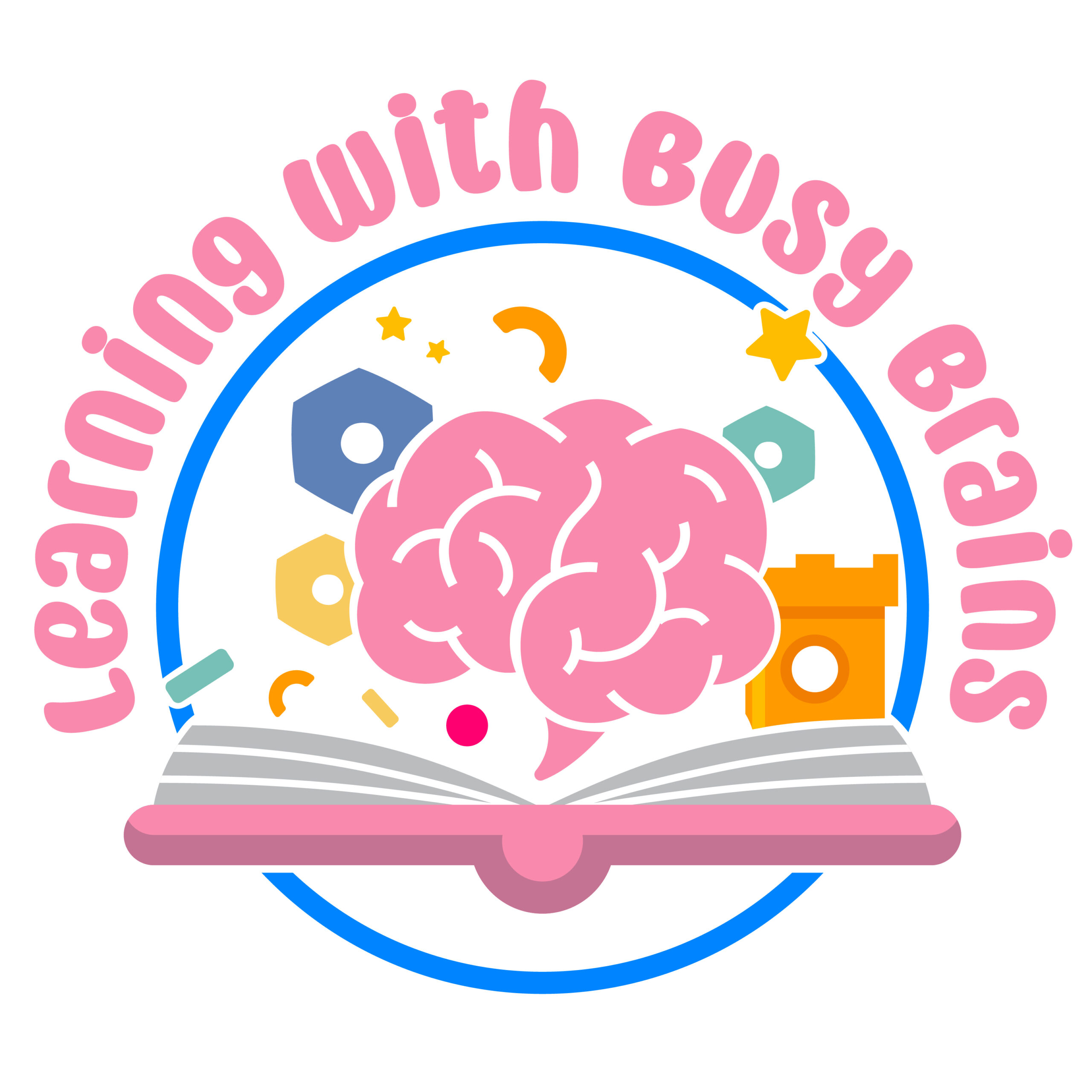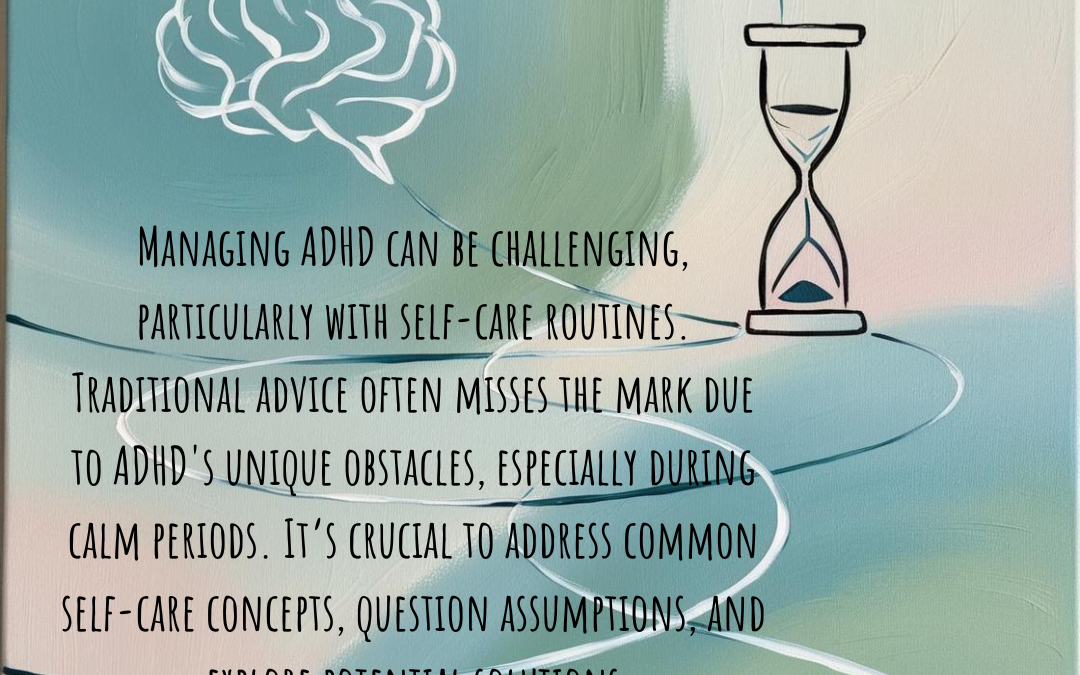If you haven’t already, I recommend reading my previous post on why self-care is even more crucial for managing ADHD. It was originally one post, but I’ve now divided it into two different categories.
Managing ADHD is challenging for many, especially when it comes to maintaining self-care routines. As someone living with ADHD or caring for a loved one with ADHD, you may have noticed that traditional self-care advice doesn’t always resonate. ADHD often presents unique obstacles, particularly during periods of calm. In this post, we’ll critically examine some common concepts about ADHD and self-care, question existing assumptions, and dive deeper into potential solutions.
ADHD and Self-Care Neglect
What’s the Root Cause?
It’s often said that people with ADHD struggle to maintain self-care, particularly during calm periods. But why is this the case? Why do those with ADHD often only stick to routines when there’s external pressure or a crisis? Is it simply the brain’s reward system at play, or is it something deeper related to emotional regulation and motivation?
- Analytical Question: Could it be that the ADHD brain doesn’t inherently lack the ability to care for itself but instead struggles with societal expectations and structures? Could neglect be tied to emotional dysregulation, where ADHD individuals might avoid tasks when there’s no external urgency?
Understanding the “Calm Period” and its Significance
Why Are Calm Periods Problematic?
While most people can stick to routines during calm periods, those with ADHD often experience neglect during these times. But why does this occur? Could the absence of a crisis be exactly what makes self-care difficult?
- Exploratory Question: Could the tendency to neglect self-care during calm periods be linked to “time blindness,” a common ADHD challenge? What role does the lack of external motivation play in maintaining routines?
The Role of Hormones and the ADHD Woman
Does Hormonal Change Exacerbate ADHD Symptoms?
Women, particularly those approaching menopause, face an added layer of complexity when managing ADHD due to hormonal fluctuations. Do these hormonal changes just amplify ADHD symptoms, or do they play a more central role in how ADHD manifests in women?
- Question for Reflection: Could there be a significant interaction between hormonal changes and ADHD, making self-regulation and coping strategies harder for women than for men? How can we adapt ADHD strategies for different stages of life?
Self-Care as a Preventative Measure
Does Prevention Really Work for ADHD?
Many people suggest that daily self-care can prevent ADHD crises. However, how effective is this strategy for those with ADHD who struggle with consistency over the long term?
- Critical Evaluation: Is it realistic to expect individuals with ADHD to maintain self-care without frequent reminders or external interventions like therapy or medication? Could a more structured, external support system be necessary to complement self-care efforts?
Making Du’a vs. Taking Action
How Do Spirituality and Practical Action Intersect?
Balancing spiritual practices, such as du’a (praying for Allah’s help), with practical self-care is essential. But is there an optimal balance between faith and personal responsibility when managing ADHD?
- Reflective Question: How do we strike a balance between relying on faith-based practices and taking personal action? Is it possible to rely on action alone, or do certain situations require more spiritual intervention alongside practical steps?
Breaking the Cycle of Self-Care Neglect
Can Small Habits Truly Work Long-Term?
Many ADHD self-care strategies focus on small, manageable habits and visual reminders. But how effective are these small habits in creating lasting change?
- Analysis: Does research support the idea that small changes are enough to break the cycle of self-care neglect in ADHD individuals? Or do we need more systemic changes, such as environmental or relational support, to see long-term improvements?
Practical Applications of Critical Thinking in ADHD Self-Care
- Evaluate the Evidence:
Consider the scientific research on strategies like visual reminders, alarms, or setting routines. Do these solutions work for all ADHD types, or are they more effective for specific subtypes?- Question to Ask: Are there studies showing that consistent routines are universally effective for ADHD individuals, or does each case require a more tailored approach?
- Consider Diverse Perspectives:
Not all people with ADHD experience it the same way. Reflecting on the diversity of ADHD profiles (hyperactive, inattentive, combined) could lead to more inclusive advice.- Analytical Thought: How can strategies be adapted based on whether someone has a hyperactive or inattentive ADHD profile? Could a solution for one be counterproductive for another?
- Ask “Why” and Explore Solutions:
Many people with ADHD thrive in crisis situations. But why does this happen? Is it linked to dopamine regulation? Could we redesign self-care strategies to align with this natural tendency?
Conclusion: Moving Beyond Simple Solutions
This critical exploration encourages us to ask deeper questions about ADHD and self-care. Rather than simply offering solutions, we should examine the mechanisms behind ADHD and seek tailored strategies. Whether it’s understanding the hormonal impact on ADHD, evaluating the true effectiveness of small habits, or balancing practical action with spirituality, there’s much more to ADHD management than we often acknowledge.
By critically reflecting on these concepts, we can create more nuanced, effective strategies that cater to the complexities of ADHD.
Would you like to explore any of these points further? Or share your own experience with managing self-care in ADHD? Let’s continue the conversation.


